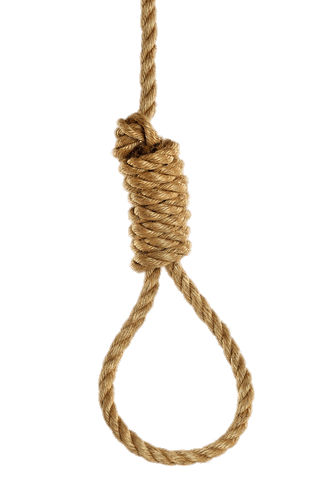April 19, 2019

“The important point in our recent report is the decrease in the number of executions from 517 in 2017 to 273 in 2018,” Mahmud Amiry-Moqaddam, the co-founder of IHR and its spokesman, told IranWire.
“This is an unprecedented drop in the past 10 years,” he said, adding that the drop was due to changes in the country’s Anti-Narcotics Law. “Unlike short-term fluctuations, the number of executions in Iran in 2018 shows a purposeful change,” he said. “The number of drug-related executions fell from 231 in 2017 to 24 the following year.” Thus, the decline was almost entirely the result of the new law removing many drug offenses from capital punishment.
But Amiry-Moqaddam said the group’s annual report found that 66 percent of the executions carried out in 2018 were not publicly announced by the Islamic Republic. “We found [out about] these through news [in local newspapers], from reports by the families of those executed and other evidence,” he said.
“Most of the unannounced executions took place in border regions,” he said, pointing out that these provinces are home to large populations of ethnic minorities. “More than 90 percent of the unannounced executions were carried out secretly in these regions. We were not able to cite many executions of the members of ethnic groups because our method is to only cite cases that at least two independent sources have verified.”
Although it was difficult to ascertain an exact number on the executions of people from minority communities, Amiry-Moqaddam said the charges against these individuals tended to be politically motivated. “What is noteworthy is the increase in the number of executions on charges of moharebeh [waging war against god] or ‘corruption on earth,’ which clearly show a political bias. Of course, to be more exact, these statistics cover border regions that include areas populated by ethnic minorities.
Three Kurdish prisoners— Zanyar Moradi, Loghman Moradi and Ramin-Hossain Panahi — three Baluchi prisoners and eight other prisoners accused of working with ISIS [after the 2017 terrorist attack on the Majlis] are among those who were executed on charges of ‘corruption on earth’ and ‘waging war against God.’ Also executed on the charge of ‘corruption on earth’ were three people who had been convicted of financial crimes,” he said.
There is an absence of due process in most of these death penalty cases, Amiry-Moqaddam said, and there were widespread reports that prisoners had been denied access to a lawyer. For example, he cites the case of Zanyar and Loghman Moradi, who were sentenced to death for murdering the son of the Friday Prayers Imam for Marivan in Kurdistan. Although their lawyer, Saleh Nikbakht, repeatedly told the court that the day the murder took place Loghman Moradi had been working on a construction crane in Sarvabad, 35 kilometers from Marivan, the court ignored the defense and instead cited confessions they had been forced to give under duress after being tortured.
According to the report, in 2017 Iran executed five children, and in 2018 this number rose to six.
“Among all countries in the world and even among countries in the region that follow Sharia, Iran is the only country that executes child criminals,” Amiry-Moqaddam told IranWire. “Saudi Arabia sentences children to death as well but does not carry out these sentences.”
He also said that the Islamic Republic’s continuing practice of carrying out public executions was another blot on the country’s human rights record. “Like the execution of children, few countries carry out public executions,” he said. “Moreover, it has no basis in Sharia. Therefore, the international community can seriously ask the Islamic Republic to end this practice.”
Amiry-Moqaddam puts special emphasis on the lack of due process in all death penalty cases, from defendants charged with murder to political activists. “I can say with certainty that throughout all the years that Iran Human Rights has been working to abolish the death penalty in Iran, there has been no one who had been sentenced to death and has not been tortured in the course of prosecution,” he said.
“Three years ago, a domestic newspaper published a report about the defendant in a murder case who was found not guilty just 48 hours before he was to be executed when they found the real murderer. When asked why he had confessed to a murder that he had not committed, he answered: ‘After the arrest they beat me so much that I said to myself that if I did not confess I would die under torture.’ He had been hopeful that if he confessed to what the agents wanted, he would have a chance to survive.”
Some political activists oppose the idea of raising the issue of human rights as part of negotiations between Iran and western governments. In their view, it’s also an abuse of human rights to put pressure on Iran.
“As a human rights activist, I find the opposition of some political activists to negotiations between western countries and the Islamic Republic over human rights completely illogical,” Amiry-Moqaddam said. “I believe, on the contrary, such diplomatic negotiations to be one of the most important tools for improving the situation in Iran.”
Meanwhile, Amnesty International issued its annual tabulation on executions. It said China once again led the world, though it could not put a number on China’s executions. Despite the huge reduction by Iran, the Islamic Republic ranked second with 253 executions in 2018, 20 fewer than the Iran Human Rights organization counted. Iran was followeed by Saudi Arabia with 149 executions, Vietnam with at least 85 and Iraq with at least 52. In the United States, 25 people were executed by states, none by the federal government.